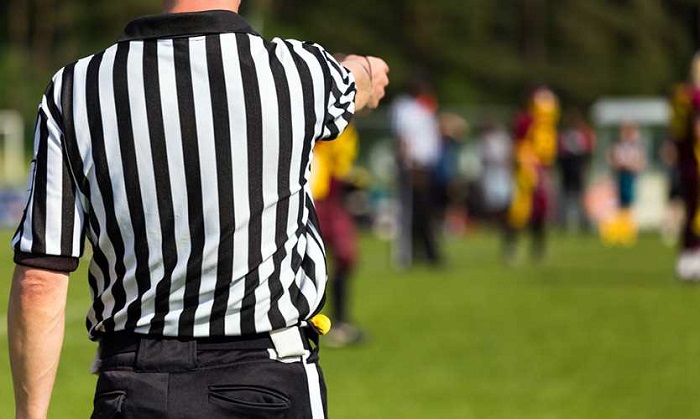The role of a referee in football is one of the key factors influencing the course and outcome of a match. Sports betting API significantly depends on the correct, informed, and timely decisions made by referees, underscoring the importance of high qualifications and professionalism among referees.
The work of referees is associated with a number of challenges, such as the need to constantly make decisions under conditions of high-speed player movement and ambiguous game situations. These conditions create the risk of errors that can affect the result, causing dissatisfaction among teams, coaches, and fans.
Problems of Objectivity and Subjectivity in Decision-Making by Football Referees
When officiating football matches, referees face a number of challenges related to the need to make quick and accurate decisions. Often, decisions regarding a foul, offside, or a free kick require not only knowledge of the rules but also the ability to correctly interpret the situation on the field. In such cases, artificial factors such as pressure from spectators, coaches, or even one’s own emotions can influence a referee’s objectivity.
Subjectivity in refereeing actions can manifest itself in various situations: from misjudging a moment to bias toward a particular team. This creates ambiguity in the perception of the situation, which negatively affects trust in refereeing and causes controversy among fans and experts.
The Main Reasons for the Manifestation of Subjectivity and Objectivity in Refereeing
- Lack of Time: The rapid nature of decision-making often leads to errors.
- Misunderstanding of the Rules: Ambiguity in the interpretation of the rules or their incorrect application.
- Psychological Pressure: The influence of the opinions of coaches, spectators, and other match participants.
- Personal Bias: A subjective attitude toward teams or players formed earlier.
Ways to Improve the Objectivity of Refereeing Decisions
- The introduction of video-assisted refereeing (VAR) solutions, allowing for the review of Controversial situations.
- Regular professional development and training for referees based on error analysis.
- Use technology to determine offside positions and other key moments.
- Create a system of objective criteria for assessing fouls and other actions.
Practical measures to improve the professional level of football referees
To improve the quality of refereeing in football, it is necessary to implement systematic and targeted measures aimed at developing the professional skills of referees. Only a comprehensive approach can minimize errors, enhance the authority of referees, and ensure the fairness of games.
Optimizing the training and supervision of referees affects their level of competence and confidence during matches. Let’s look at the main practical measures that contribute to improving the professional skills of football referees.
Key Measures for Improving the Professional Level of Football Referees
- Continuous Training and Advanced TrainingRegular training, seminars, master classes, and thematic courses help referees learn new rules, learn about technological innovations, and share experiences with colleagues.
- Use of Video Technology and AnalyticsVideo practice and error analysis allow us to identify weaknesses and correct referees’ actions, which leads to a gradual improvement in their professionalism.
- Standardization of Procedures and Evaluation CriteriaThe creation of uniform standards and regulations helps to unify the work of referees, increase transparency, and reduce Subjectivity.
- Increasing accountability and rewarding the best refereesProviding bonuses to professional referees and encouraging their participation in international competitions motivates them to continually develop and improve their skills.
- Implementing a feedback and ongoing monitoring systemMonitoring referees’ performance through observation, participant feedback, and match analysis facilitates the timely identification and resolution of problems.
Overall, the systematic implementation of these measures contributes to improving the professionalism of football referees, which, in turn, guarantees higher quality and fairer refereeing. This is necessary to strengthen trust in the refereeing system, increase interest in football, and ensure fair sporting competitions.


